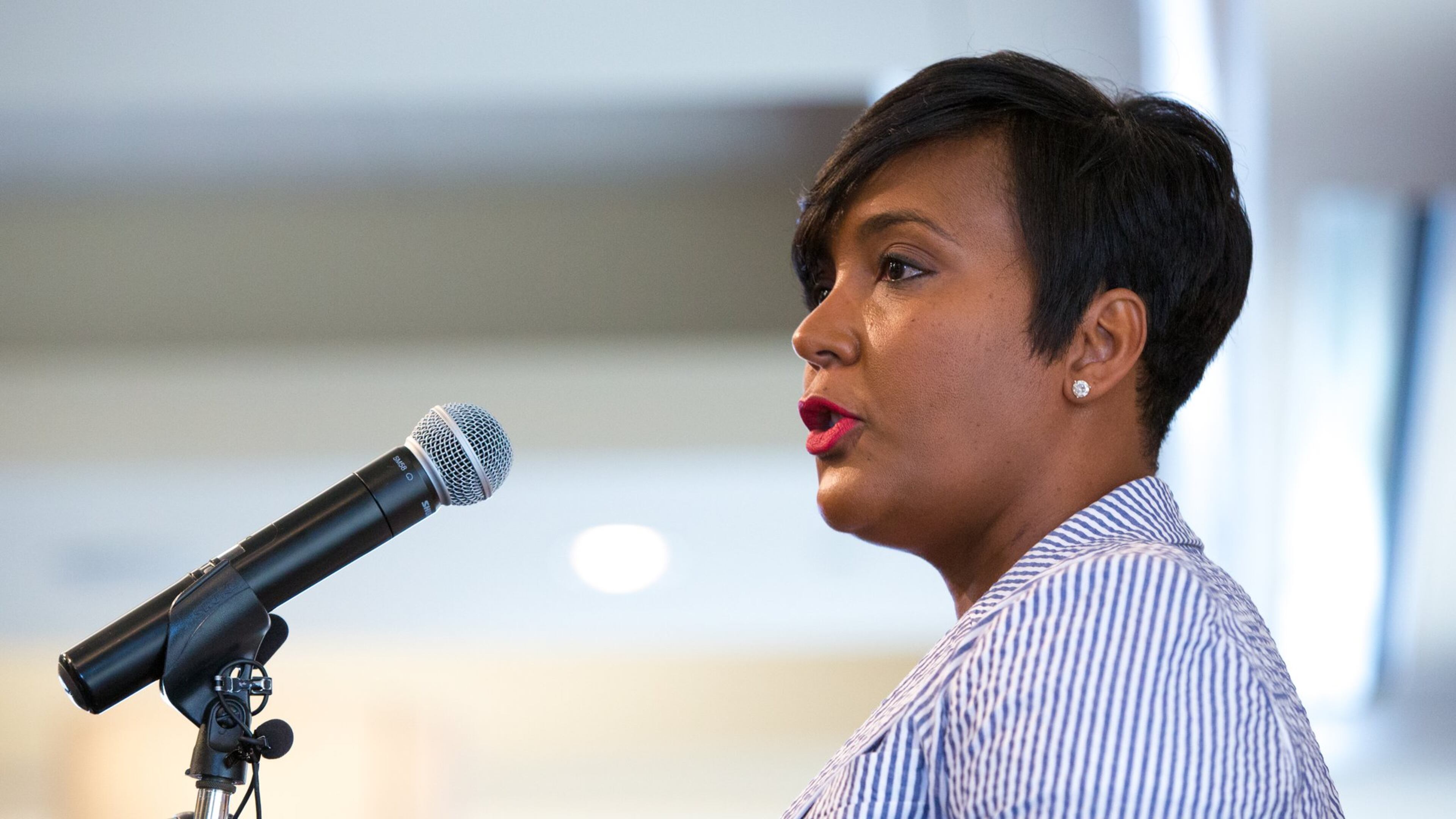Atlanta mayor vetoes administration’s plan for two-way street downtown

Atlanta Mayor Keisha Lance Bottoms took an unusual step this week when she vetoed legislation that her administration initially put forward — a proposal to convert Baker Street from a one-way thoroughfare to a two-lane street.
The downtown street takes tourists to some of Atlanta's most prized destinations and hotels, and over the past few months the debate came down to whether the roadway should cater to motorists or pedestrians.
By late Wednesday, Bottoms still hadn’t issued a letter explaining the action. But Renew Atlanta General Manager Josh Rowan told the city council’s Transportation Committee that the project wasn’t dead, despite the veto.
VIDEO: PREVIOUS COVERAGE OF THIS STORY
The administration and Renew Atlanta, the agency charged with overseeing the city’s infrastructure projects, both remain committed to the conversion, Rowan said Wednesday. But city officials want time to address potential problems after concerns were voiced by hoteliers and residents, he said.
The legislation was introduced in late April at the request of Bottoms' administration.
The response from business owners and residents along the six-block corridor was mostly negative. Most of those who complained worried that making the street run two ways would slow down traffic and create gridlock.
Deirdra Greenfield, a Downtown Neighborhood Association board member, told the council that her organization overwhelmingly supported the project.
The veto shocked Greenfield and her husband, Ken, empty-nesters who live in Museum Tower at the corner of Baker Street and Centennial Olympic Park Drive.
“It’d be nice to keep talking about it,” Deirdre Greenfield said, “and hopefully she’ll understand that there are a lot of people who want this.”
Ken Greenfield said the two-way convergence would have given downtown Atlanta a more residential-friendly vibe, similar to that of Midtown.
Central Atlanta Progress, which runs downtown’s improvement association, has also championed the project.
“We continue to believe in this project and want to see it come to fruition,” Wilma Sothern, Central Atlanta Progress’ Vice President of Marketing, said Wednesday.
Supporters will likely still have to contend with deep-pocketed resistance.
Real estate tycoon, Richard Bowers, whose building sits at Peachtree and Baker streets, funded a traffic engineering report that said the conversion would create more problems for hotel patrons trying to get out of town.
Bowers also hired Michael V. Coleman, a former a city attorney under Mayor Maynard Jackson, to lobby the administration and council.
After more than two months of debate, the city council approved the $2.67 million project with a 11-4 vote last week.
It was supposed be the the first of more than six miles of one-way streets slated for conversion.
Other streets on Atlanta’s downtown master plan wish list are John Portman Boulevard, Andrew Young International Boulevard, Ellis Street, Centennial Olympic Parkway, Ted Turner Drive, Peachtree Center Avenue and Mitchell Street.
Two days after the council approved the project, Coleman wrote Bottoms a letter requesting that she veto the legislation.
Coleman argued that the city needed to study the entire downtown street grid to understand how converting Baker Street would impact traffic.
“The entity primarily responsible for pushing this legislation was Central Atlanta Progress, which employed dubious methods to get the legislation through as opposition was building,” Coleman wrote. “The City of Atlanta, not CAP, should be the final arbiter of what happens in downtown.”
Councilmen Andre Dickens and Amir Farokhi said Wednesday they were taken aback by the veto. Dickens chairs the council’s Transportation Committee. Farokhi is a member.
“Most of us were surprised because it was the administration’s paper,” Farokhi said. “I am happy that the administration continues to believe that a two-way conversion on Baker Street is appropriate. We just need to work out some of the rough edges.
Coleman said Bottoms’ veto showed her willingness to listen.
“I think it is a sign of good leadership when you can look at what the public is saying,” he said.
Reporter Raisa Habersham contributed to this story.

